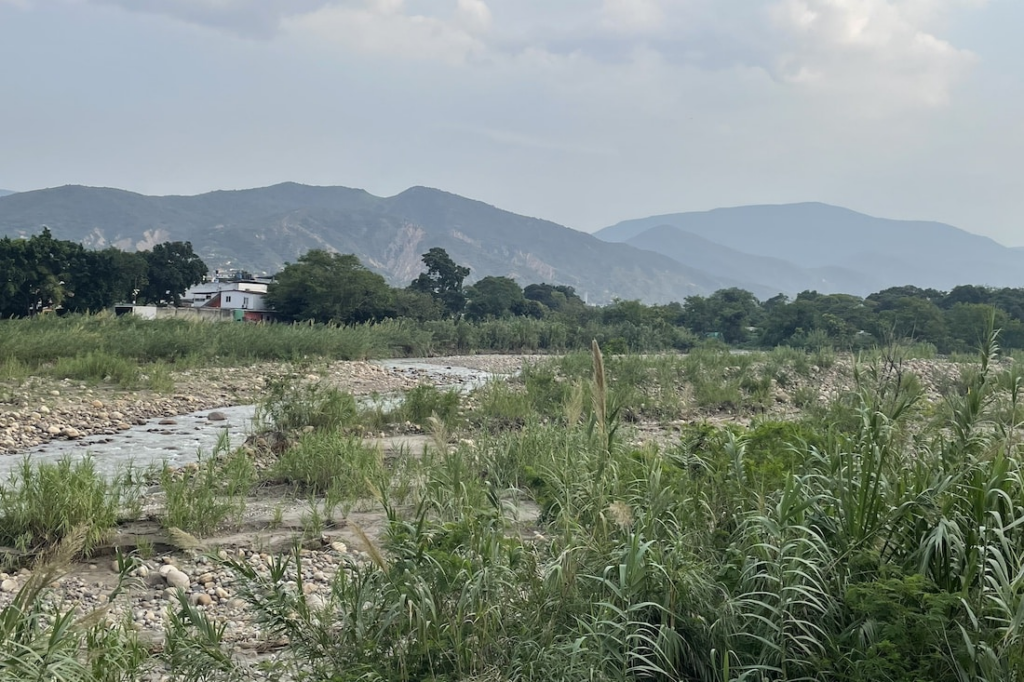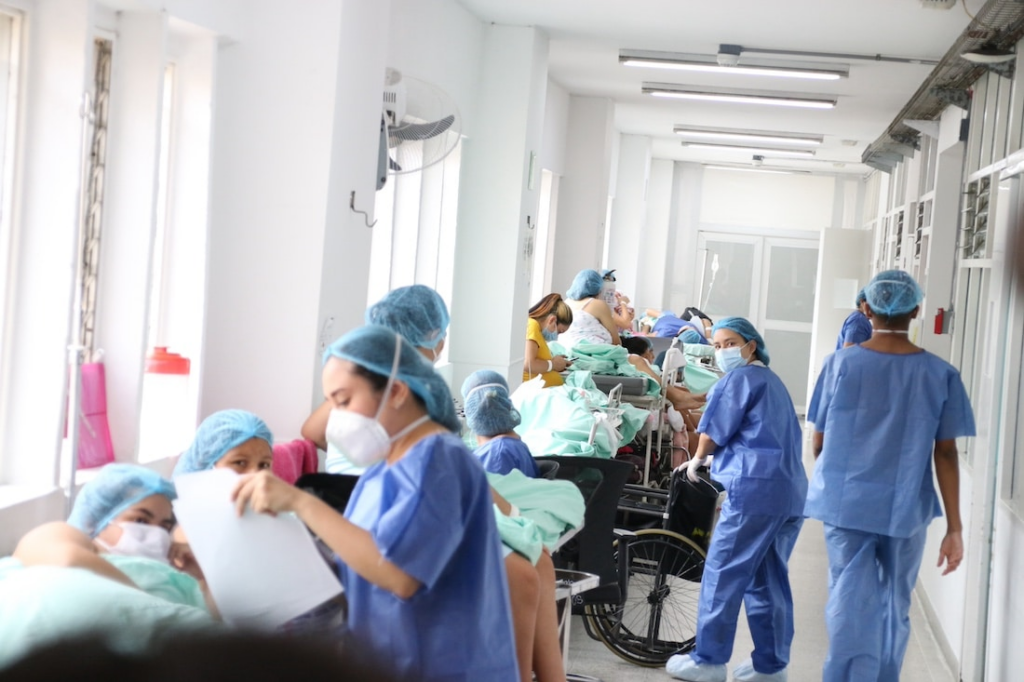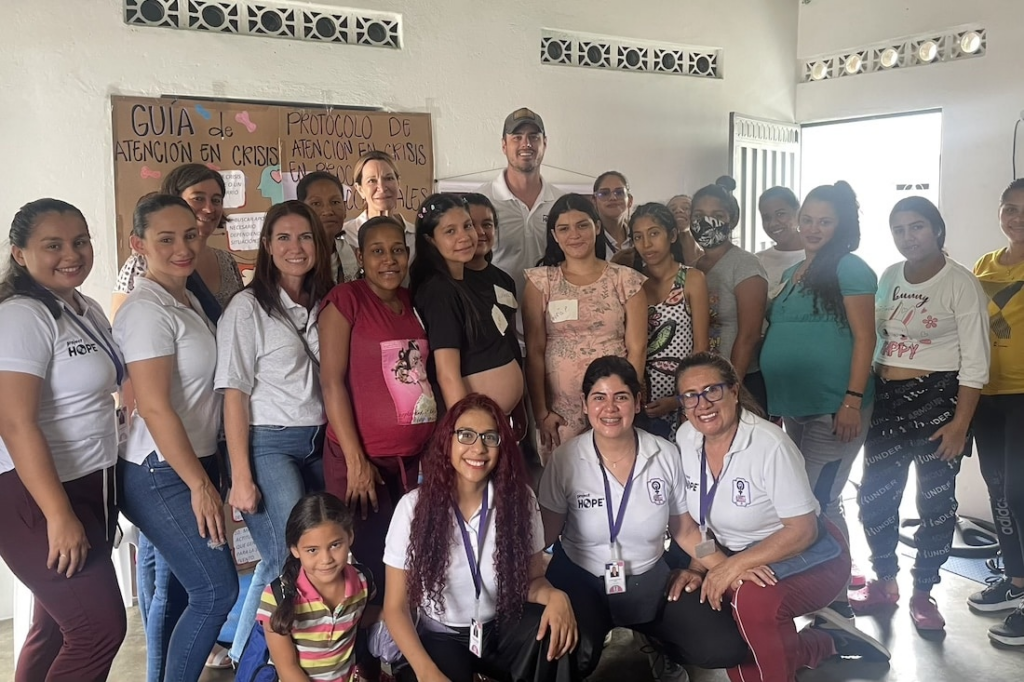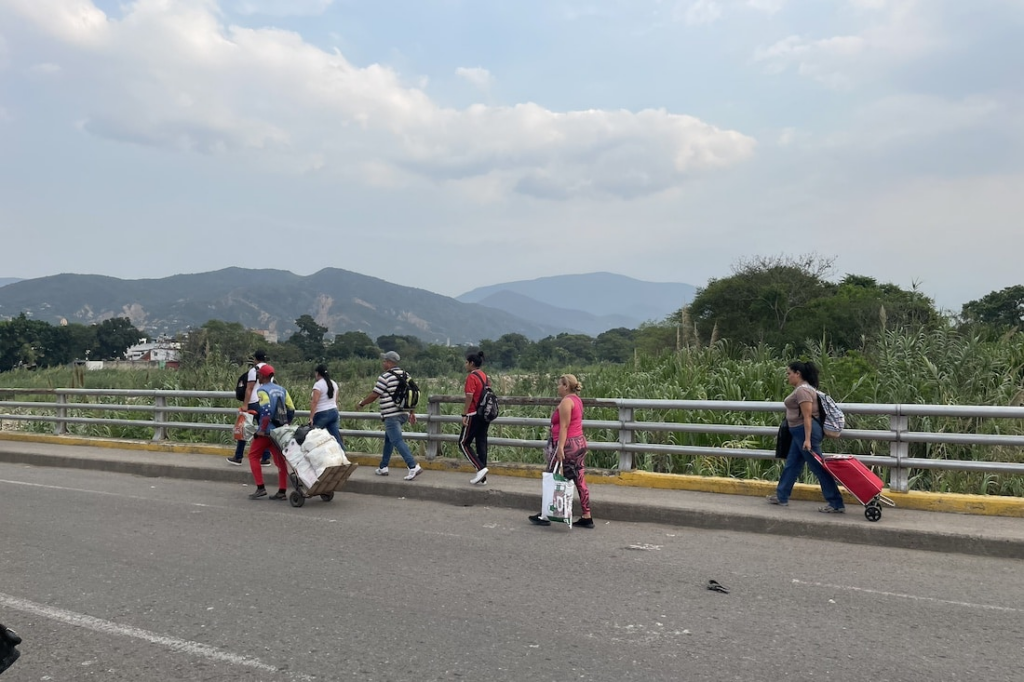By Cinira Baldi.
First published November 1, 2023 by Project HOPE.

Visit the Colombia-Venezuela border, where Project HOPE is working inside communities and health centers to connect Venezuelan women and girls to essential care.
Earlier this year, I had the opportunity to visit Project HOPE’s programs in Colombia, where for the past five years we have had an active presence responding to the migrant crisis that has seen more than 7 million people flee neighboring Venezuela.
Colombia is now home to the largest number of Venezuelan refugees and migrants: at least 1.8 million people have sought refuge there over the past several years, many of whom need urgent health services. The shift has brought hundreds of thousands of new patients to Colombia’s hospitals and clinics, which have struggled to provide the necessary levels of treatment and care.
Our team is based in the city of Cúcuta, which straddles the border with Venezuela, where we work to increase critical health services to serve the growing migrant and refugee community, with a focus on improving birth outcomes by creating pathways for maternal and prenatal care. From the moment we arrived, it was evident that there was not only a humanitarian issue at hand, but a health crisis. Young women and girls travel for hours — sometimes on foot while pregnant — to get access to health care in Cúcuta. Many of these women have not yet had any prenatal care or find out while at the hospital that they have preeclampsia or gestational diabetes. Because of the economic situation in Venezuela, prenatal care is either unaffordable or simply inaccessible.

While there, we visited Erasmo Meoz University Hospital, which provides maternal and newborn care and is the only tertiary care hospital in Colombia’s Norte de Santander department that has specialist staff and surge support for emergency OB/GYN services and delivery room care.
Due to the lack of options in the region, pregnant girls and women often travel more than six hours in dangerous conditions to reach this hospital. Once they arrive, they are triaged and screened for health conditions that commonly go undiagnosed due to the lack of preventative prenatal care, such as preeclampsia and cancer. While touring the hospital, I was introduced to a 15-year-old girl who had gone into cardiac arrest while traveling from Venezuela to Cúcuta due to undiagnosed preeclampsia. Fortunately, the doctor at Erasmo Meoz was able to stabilize her upon her arrival to the hospital and safely delivered her baby. As a mother myself, it deeply saddened me to hear of so many people suffering from life-threatening health conditions they were not aware of due to such a profound lack of health care access, which put not only their health at risk, but their babies’ too.
As a mother who was fortunate to have safely delivered my twin daughters in a hospital in the United States, I was struck by how quickly women are sent home after giving birth: four hours for vaginal births and 24 hours for C-sections, compared to one-to-two days — and in some cases up to five — in the U.S. Before being discharged, the staff discusses family planning options and offers birth control. Despite the low nurse-to-patient ratio, I was deeply moved by the level of care here. The team leading the work was phenomenal and treated everyone like they were family.

The next day, we visited a small family health clinic near the Venezuela border where Project HOPE has worked since 2019. The clinic largely serves Venezuelan women and children who cross the border early in the morning to wait in a long line to see a doctor. I was struck by the long line of patients who arrived before opening, patiently waiting to be seen. By late afternoon the clinic was almost empty, and across the street we visited another program focused on pregnant mothers.
I was fortunate to participate in a maternal health class with our partners Jorge Cristo Sahium Hospital and the local organization, Mujer Denuncia y Muevete (CMDyM). Every week, at least 10 young women come to this weekly meeting, which serves as a safe haven for them. It is staffed by a psychologist, community health workers, and a lawyer. As I sat quietly with the women, I listened as the nurse explained to them what to be alerted to for prenatal complications or symptoms of labor. She also discussed nutrition and breathing exercises, and we all participated in some gentle stretching together.
Probably the most impactful part was the group mental health sessions facilitated by psychologists who provide space for women to speak about their experiences. It was heartbreaking to hear how many of the women had survived traumatic experiences of sexual- and gender-based violence or were trying to come to terms emotionally with how they would raise a baby while working and trying to return to school. It quickly became evident that many of these women did not have planned or expected pregnancies, which is why family planning and mental health support are so critical for these communities. We were witnessing the correlation between health and gender inequities, particularly for migrant women, which shined a light on the importance of giving woman a safe space.

As we approached evening, we headed to the Simon Bolivar International Bridge in La Parada, which connects Colombia and Venezuela. This border crossing opened in January, which has allowed Venezuelans to make the trip into Colombia on a regular basis to get medical care, work, and to buy groceries and supplies for their families. We walked across the bridge around 5 p.m. that day as a large influx of people and cars moved back from Colombia to Venezuela with fruits, clothing, and even furniture in tow. You got a feel for the daily long walks that are necessary in order to access what we on most days take for granted. When you think about being pregnant and making that walk, it becomes even more unimaginable.
We witnessed a rush of people trying to cross before the border closed again for the night — a solemn reminder that there is so much more work to be done.

Despite the arduous challenges facing the women we met, it was deeply inspiring to see their commitment: showing up for prenatal visits holding stacks of paperwork from previous appointments, bravely sharing their stories in mental health support groups, learning health signs to be on the lookout for, and doing all they can to commit to a healthy life for themselves and their families, whether this was what they had imagined for themselves or not.
Project HOPE’s work to create pathways for girls and women to get access to care from prenatal through childbirth is making great strides. However, there is still an urgent need to continue to grow and provide more support for women. You can support this lifesaving work by donating today.
Cinira Baldi is Project HOPE’s Chief Development and Communications Officer.
